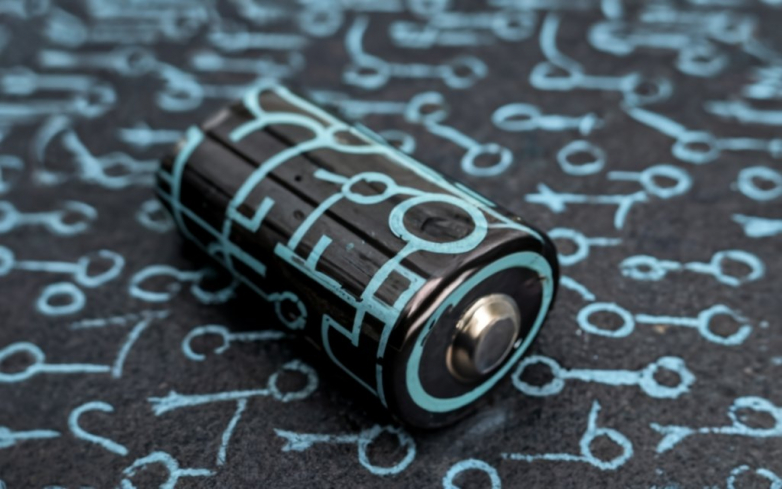Organic, Cobalt-Free Batteries: The Future of Long-Lasting Power
- Researchers have discovered a carbon-based cathode material that could replace cobalt in lithium-ion batteries, offering higher energy density and faster charging times.

Researchers have developed an earth-abundant, carbon-based cathode material that could replace cobalt in lithium-ion batteries without sacrificing performance, according to a study published in ACS Central Science. The scarcity and environmental impact of cobalt extraction has been a limiting factor in the transition to renewable energy sources. Previous attempts to develop cathodes from carbon-containing materials were unable to match the energy output and stability of traditional lithium-ion batteries. However, the researchers found that bis-tetraaminobenzoquinone (TAQ) molecules formed layered solid-state structures that could potentially compete with cobalt-based cathodes. The TAQ-based cathodes cycled more than 2,000 times safely, had higher energy density than most cobalt-based cathodes, and charged-discharged in as little as six minutes.
While the TAQ-based cathodes require further testing before they can be commercialized, the researchers are optimistic that they could enable the development of high-energy, long-lasting, and fast-charging batteries. This could help accelerate the global transition to a renewable energy future that is cobalt- and nickel-free, addressing the environmental and societal costs associated with the extraction of these metals.
Can a carbon-based cathode material replace cobalt in lithium-ion batteries without sacrificing performance?
- The scarcity and environmental impact of cobalt extraction has been a limiting factor in the transition to renewable energy sources.
- Previous attempts to develop carbon-based cathodes were unable to match the energy output and stability of traditional lithium-ion batteries.
- Researchers have developed a carbon-based cathode material called bis-tetraaminobenzoquinone (TAQ) that could potentially replace cobalt in lithium-ion batteries.
- The TAQ-based cathodes cycled more than 2,000 times safely, had higher energy density than most cobalt-based cathodes, and charged-discharged in as little as six minutes.
- The TAQ-based cathodes require further testing before they can be commercialized.
- The researchers are optimistic that TAQ-based cathodes could enable the development of high-energy, long-lasting, and fast-charging batteries.
- The use of carbon-based cathodes could help accelerate the global transition to a renewable energy future that is cobalt- and nickel-free.
- This development could address the environmental and societal costs associated with the extraction of cobalt and nickel.
